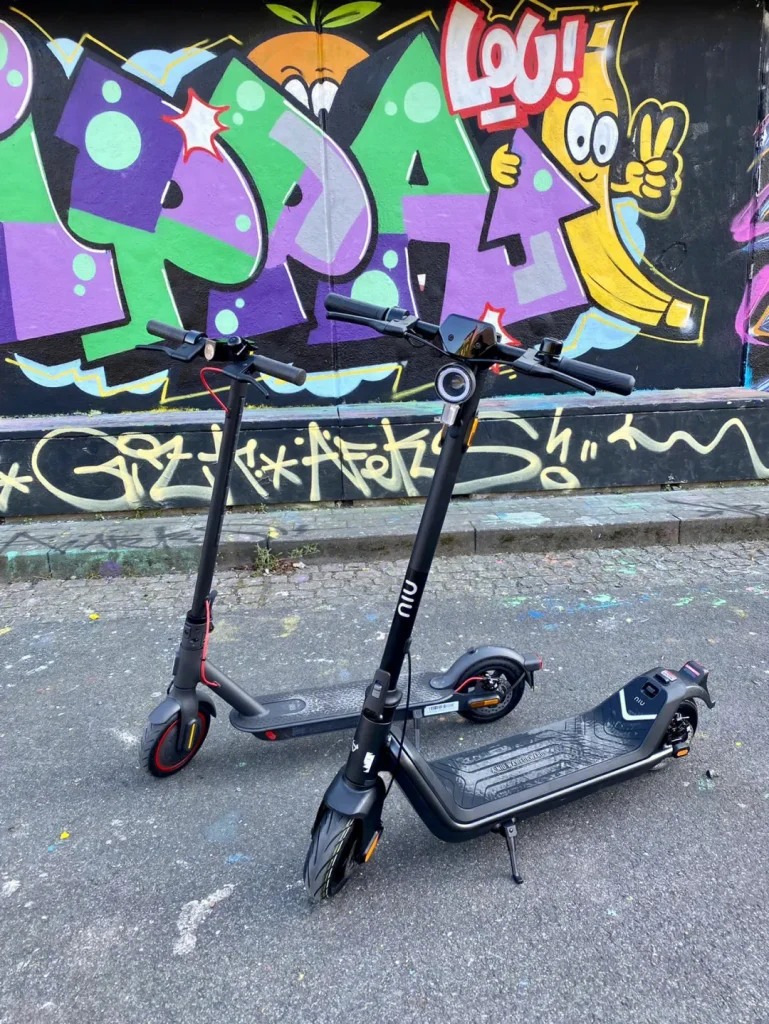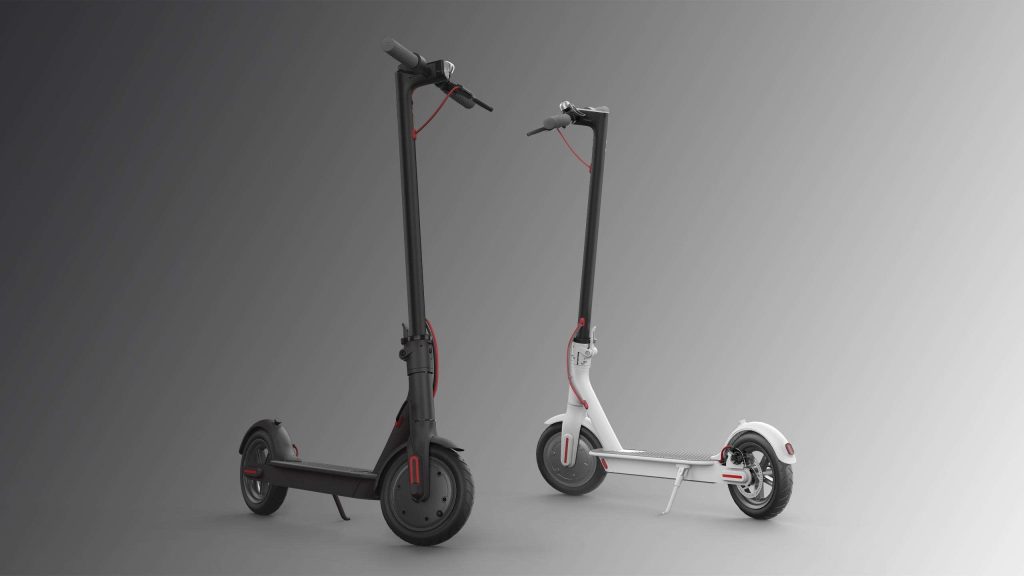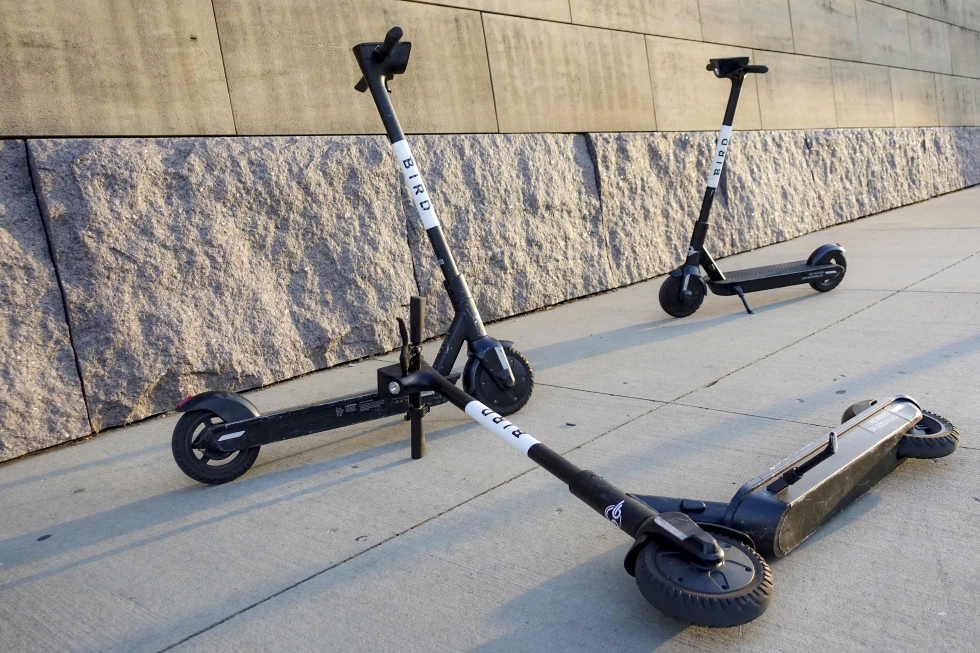Bird Global, a leading electric scooter company, has recently filed for bankruptcy protection in an effort to restructure its finances and address its mounting debt.
This move comes as a surprise to many, as Bird Global has been a prominent player in the electric scooter market, with a presence in numerous cities around the world.
The company’s decision to seek bankruptcy protection is seen as a strategic move to alleviate its financial burdens and pave the way for a more sustainable future.
Despite facing challenges, Bird Global remains optimistic about its prospects and is committed to emerging from this process stronger and more resilient.
The company’s leadership has expressed confidence in its ability to navigate through this difficult period and emerge as a more financially stable and profitable entity.
With a focus on operational efficiency and strategic growth initiatives, Bird Global is determined to overcome its current challenges and position itself for long-term success in the electric scooter industry.
As the company embarks on this restructuring journey, it is imperative for stakeholders to closely monitor its progress and support its efforts to emerge as a stronger and more resilient player in the market.
The recent announcement of Bird Global filing for bankruptcy protection has sent shockwaves through the business world.
Once hailed as a revolutionary force in urban transportation, the electric scooter company’s rapid rise and subsequent fall serve as a cautionary tale for startups and investors alike.
This essay aims to delve into the factors that led to Bird’s current predicament, the implications of its bankruptcy filing, and the lessons that can be gleaned from this dramatic turn of events
Bird Global burst onto the scene with a bold vision to transform urban mobility by offering a fleet of electric scooters as a convenient and eco-friendly alternative to traditional modes of transportation.
Its innovative concept quickly garnered attention and substantial financial backing, with investments totaling approximately $500 million from prominent venture capital firms, including Sequoia Capital and Accel Partners.
The company’s meteoric rise culminated in its initial public offering in 2021, a move that was met with considerable fanfare and optimism within the investment community.
However, Bird’s trajectory took a sharp downturn as it grappled with mounting financial losses, amounting to over $430 million since the close of 2021.
The company’s inability to achieve sustainable profitability, coupled with fierce competition and regulatory hurdles in various cities, eroded investor confidence and precipitated a precipitous decline in its stock value.
The stock plummeted by nearly 80% to a mere 8 cents per share, a stark contrast to its peak valuation of approximately $154 per shar
In response to its dire financial situation, Bird Global made the difficult decision to seek Chapter 11 bankruptcy protection in Florida.
This strategic move aims to provide the company with a lifeline to restructure its operations and liabilities while securing vital financing from MidCap Financial, a division of Apollo Global Management.
Michael Washinushi, the interim CEO of Bird, expressed optimism about the company’s prospects for recovery and reiterated its commitment to enhancing urban livability through sustainable, congestion-free transportation solutions.
The bankruptcy filing of Bird Global has far-reaching implications for its stakeholders, including investors, employees, and the broader urban transportation landscape.
It underscores the inherent risks and volatility associated with investing in high-growth startups, as well as the importance of prudent financial management and market adaptation.
Moreover, it serves as a cautionary reminder of the perils of overvaluation and the need for sustainable business models in the burgeoning sharing economy.
In conclusion, the rise and fall of Bird Global epitomize the dynamic and unforgiving nature of the contemporary business environment.
While the company’s bankruptcy filing represents a significant setback, it also presents an opportunity for introspection and recalibration.

As Bird embarks on its journey of reorganization and revitalization, the broader business community can glean invaluable insights from its experiences, reinforcing the imperative of resilience, adaptability, and strategic foresight in navigating the complexities of the modern marketplace.
The news of Bird Global filing for bankruptcy protection is indeed a significant development in the realm of urban transportation and sustainability.
The company, once hailed as a trailblazer in the electric scooter industry, has now succumbed to financial turmoil, signaling a stark contrast to its former prominence and potential.
The rise and fall of Bird Global epitomize the volatile nature of the tech startup landscape, where ambitious visions and substantial investments can quickly give way to financial instability and uncertainty.
The company’s trajectory, from attracting substantial investments to ultimately facing a dire financial situation, serves as a cautionary tale for both investors and aspiring entrepreneurs.
The impact of Bird’s bankruptcy filing extends beyond its own corporate struggles, as it raises broader questions about the viability and sustainability of the electric scooter industry as a whole.
The company’s inability to achieve financial stability despite its environmentally friendly mission underscores the challenges inherent in disrupting traditional modes of transportation and infrastructure.
With the announcement of securing $25 million in financing from MidCap Financial, Bird Global aims to navigate through the complexities of Chapter 11 bankruptcy protection and chart a path towards reorganization.
The appointment of Michael Washinushi as the interim CEO reflects the company’s determination to steer its operations back on course and uphold its commitment to fostering livable cities through innovative, eco-friendly mobility solutions.
However, the skepticism exhibited by investors, as evidenced by the substantial decline in Bird’s stock value, underscores the arduous journey that lies ahead for the company.
Rebuilding trust and confidence in the market, especially in the wake of such a drastic devaluation, will undoubtedly pose a formidable challenge for Bird Global.
As the company endeavors to rebound from this setback and pursue its vision of reducing urban congestion and environmental impact, it faces a pivotal juncture in its corporate journey.
The outcome of Bird’s restructuring efforts will not only shape its own future but also influence the broader discourse surrounding sustainable urban mobility and the role of innovative transportation solutions in shaping the cities of tomorrow.
In conclusion, the news of Bird Global’s bankruptcy filing serves as a poignant reminder of the complexities and uncertainties that accompany endeavors in the realm of urban transportation and sustainability.
As the company embarks on a path of reorganization, the implications of its journey will reverberate throughout the industry, prompting introspection and dialogue regarding the challenges and opportunities inherent in reshaping urban mobility paradigms.
It is unfortunate to hear that electric scooter company Bird Global has filed for bankruptcy protection in an effort to address its financial struggles.
This news comes as a surprise, given the rapid rise of electric scooters as a popular mode of transportation in urban areas around the world.
The company’s decision to seek bankruptcy protection underscores the challenges that many companies in the transportation industry are facing, particularly in light of the ongoing COVID-19 pandemic and its impact on travel and commuting habits.
While it is always disheartening to see a company face financial difficulties, it is important to remember that bankruptcy protection is often a necessary step for companies to restructure their debts and reorganize their operations in order to emerge stronger and more sustainable in the long run.
By seeking bankruptcy protection, Bird Global is taking proactive measures to address its financial issues and work towards a more stable and viable future.
It is also worth noting that the electric scooter industry has seen significant growth in recent years, with many companies vying for market share and seeking to capitalize on the increasing demand for alternative modes of transportation.
However, this rapid expansion has also led to fierce competition and financial pressures for many companies in the industry, making it a challenging environment for even well-established players like Bird Global.

As the company navigates this challenging period, it is important for stakeholders, including investors, employees, and customers, to remain supportive and hopeful for a successful outcome.
Bankruptcy protection is a tool that can help companies like Bird Global restructure their operations, renegotiate their debts, and ultimately emerge as stronger and more resilient businesses.
It is also a time for the company to evaluate its business model, operational strategies, and financial management in order to address the underlying issues that have led to its current financial situation.
In conclusion, the news of Bird Global filing for bankruptcy protection is a reminder of the complex and competitive nature of the electric scooter industry.
While it is a challenging time for the company, it is also an opportunity for it to regroup, reorganize, and ultimately emerge as a more sustainable and successful player in the market.
It is important for all stakeholders to remain supportive and optimistic as the company works through this process, and to look towards the future with hope for a positive outcome.
